
(Unsplash/Jason Leung)

(GSR logo/Toni-Ann Ortiz)
Our 2021-22 panel for The Life is coming to an end. For both the August and September issues of The Life, we asked all of our panelists the same question: Why do you stay in religious life? What gives you hope?
The responses are so profound, we divided the panel even further, into four different sets of responses. This is Part 4. Read parts one, two and three.
Global Sisters Report would like to thank all of the sisters who participated on the 2021-22 panel, and we hope they will continue to write for us as columnists. We all wish them well.
______
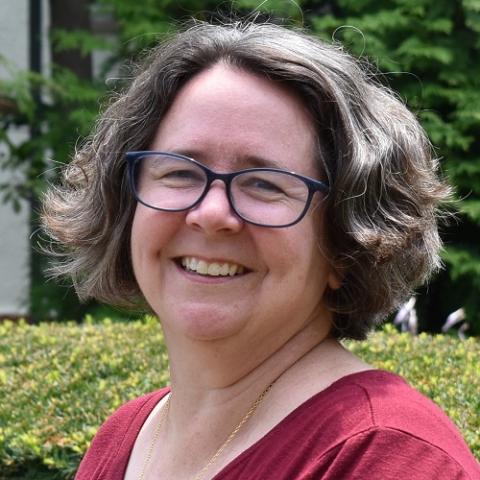
Belinda Monahan is a Benedictine Sister at St. Scholastica Monastery in Chicago. With an academic background in archaeology, anthropology and Eastern languages, she worked as an archaeologist, primarily as a faunal analyst in Armenia and the greater Near East. After making final monastic profession in 2014, she worked in parish ministry and on the executive committee of the managing board of the National Religious Vocation Conference. She currently serves as assistant campus minister at the Sheil Catholic Center at Northwestern University and as vocation minister for her community.
"Is your community worried about your future?"
Perhaps an odd question coming from a professor as we waited for other students to join our Zoom meeting, but she had known me for a while and my community for even longer. Moments later, she asked, "Are you worried about your future?"
Perhaps because I was in "student" mode, I answered immediately: "No. I felt so strongly called when I entered religious life that I assume that if God calls me away, I will know. I just try to continue to listen."
Advertisement
After class was over, I reflected on what I had said so unthinkingly. It is, I admit, not entirely true. I do worry about my future and that of my community. But it is true that I felt — and feel — very strongly called to this life. The sense of living into this call is what keeps me in religious life.
This isn't a dutiful "God called me and I am obliged to follow God's will even if it makes me miserable." When my life is aligned with God's will, I am far happier than in those times when I have strayed either because I have not been paying attention or because I am being willful. So being a sister is, for me, a path to joy and peace. In striving to follow God's will, I have come to know my deepest self better, and I am able to share that joy and peace with the people I meet.
That isn't to say that there aren't challenges in the here and now of religious life. Our communities are getting smaller, and I am well below the median age of my community.
It may seem somewhat odd to say, but what gives me hope about the future of religious life is its past. I was an archaeologist before I entered my Benedictine community, and both have given me the long view of life in general and religious life specifically.
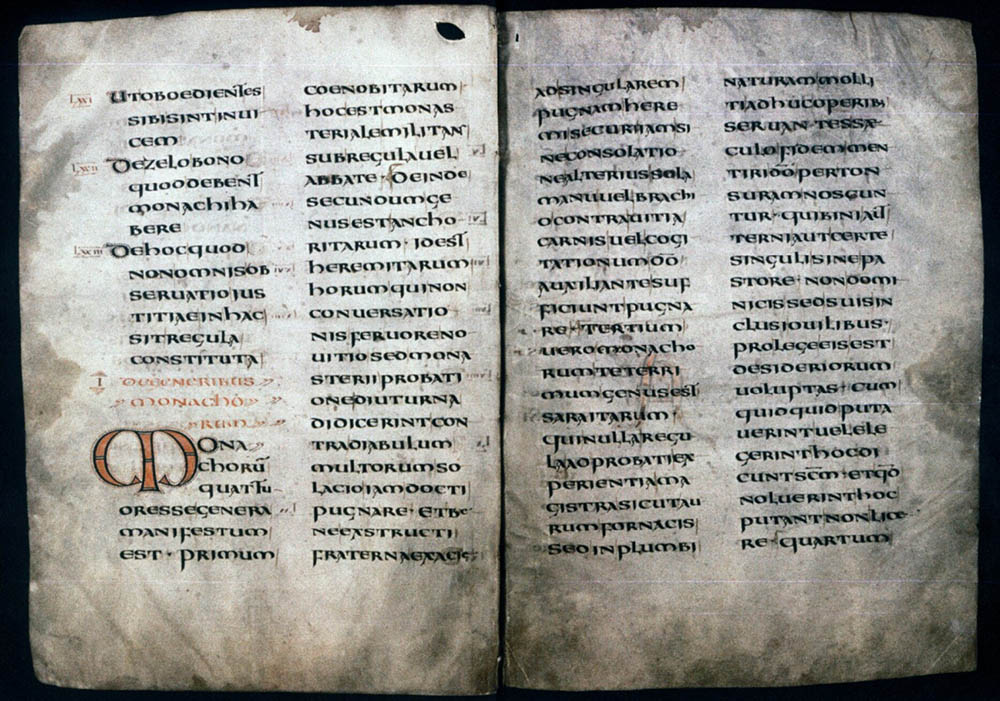
An eighth-century manuscript of the Rule of St. Benedict (Wikimedia Commons/Bodleian Libraries)
The Benedictine order has been around for more than 1,500 years, but despite its duration, it has not been static. Benedictines have interpreted and reinterpreted the Rule, remaining true to the spirit of St. Benedict if not following his exact dictums. While individual Benedictine communities have died out, the values by which Benedictines live persist.
I see the changes that my community — along with so many others — is going through as an opportunity to reflect on and reimagine how we live those values out. That will look different tomorrow than it did yesterday because the world will be different tomorrow. Following God's will, for me, I hope to be able to continue to share those values with the world.
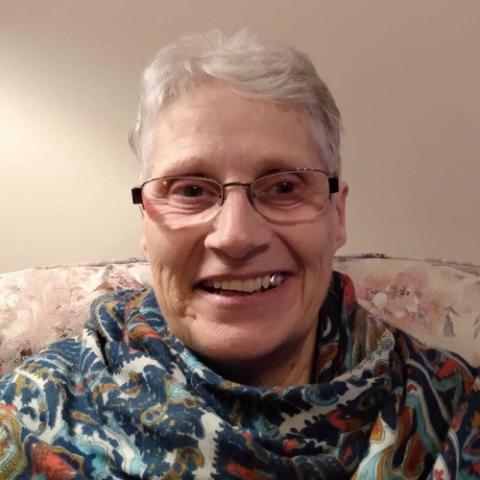
Catherine Grasswill, originally from France, joined the Ursulines of Jesus at the age of 37. She was chaplaincy coordinator in a French secondary school; worked for the Catholic Delegation for Cooperation in Cameroon; and evangelized and served as a principal in Cameroon. She accompanied young people to events like World Youth Day as well as the Taizé community in several countries. She has worked with the wives of deacons and currently shares life with Spanish and Canadian sisters while giving workshops and retreats for the Francophone community in Edmonton, Alberta, Canada.
What gives me hope in religious life?
Above all, there is Christ. In the midst of a world shaken by suffering, the model of his incarnate life — a simple life on the roads of Galilee, encountering people to whom he brought the love of God — touches me greatly.
God's love is the energy of the universe, a life that our world today, torn apart by wars and exclusion, is still cruelly lacking. But many people are concerned about the happiness of others and spread this love around them, even to the poorest, in silent or even hidden gestures. This is what so many religious men and women do throughout the world, although they certainly are not the only ones.
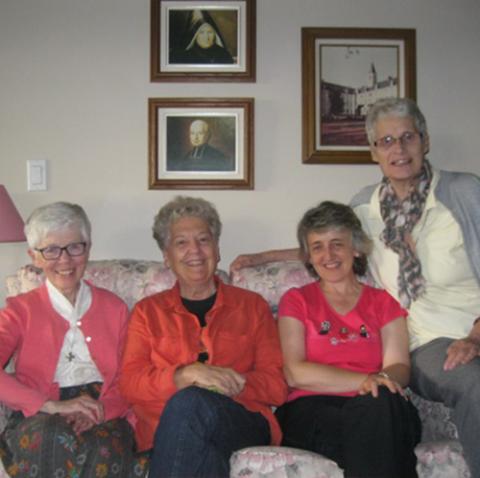
Members of the St. Kateri local community of Ursulines of Jesus (Courtesy of Catherine Grasswill)
We have been called and we are sent to be at the heart of the world. Many are engaged in the burning issues of our time, such as the welcoming of LGBTQ and "two-spirited" individuals; the place of women in the church; abortion; support for migrants, whatever their reasons for fleeing. I am engaged with them to the extent of my possibilities in order to discover in the face of the other the reflection of the presence of Jesus.
As an Ursuline of Jesus, community life is a spur to my own life, and it allows me to live the encounter with Christ in the sharing of life with the sisters of my local community (St. Kateri).
Joy is for me the first fruit of community life, even if it is not without some grumbling, discomfort and pain, like the childbirth of which St. Paul speaks (Romans 8:18-25). But there is the joy of sharing each person's personal faith, ideas, and the love of Christ that impels us to act, and this is an element that helps me to grow on my own path.
The community life I am experiencing right now is for me a mutual help from my sisters and an indispensable support in the most difficult moments. It is also the joy of sharing the word of God in our community prayer in order to put it into practice in spite of our weaknesses and personal limitations.
This community union is a strength when each one respects the other in her character, her personality, her rhythm, and allows her to develop her talents in order to put them into practice in the service of the mission while supporting her in prayer.
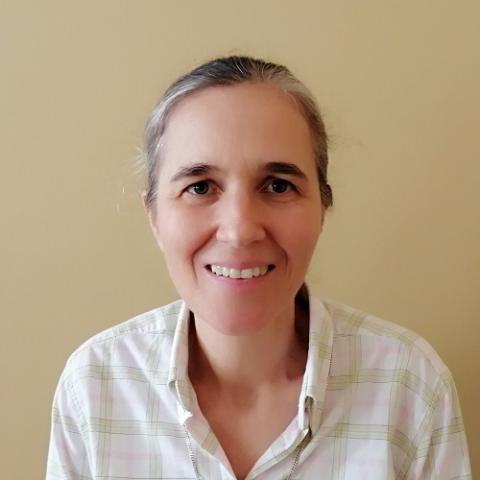
Mafalda Maria Gaudêncio Franco Leitão is from Lisbon, Portugal, and is a member of the Congregation of Servants of Our Lady of Fátima. With a background in educational sciences, her special research interests include education for sustainable development (training teachers in Portuguese-speaking African countries on water issues); education for global citizenship and integral education; and climate migrants and refugees. She taught physics and chemistry in secondary schools and worked in youth ministry in various parishes and dioceses. Currently, she serves as general counselor for her congregation.
I still have some difficulty in responding to this question, even as on Sept. 15 of this year I completed 30 years of staying in religious life. So though I am like a child astonished looking at the infinite horizon of the ocean, forgetting all the life under the surface, I will try to reply!
First, there was a call: "Mafalda, do you want to respond to my love for you and all mankind with your entire life?" Ever since then, even till now, every day and every hour, I receive a fresh call from God, supported by his word, by my community and even a broader fraternity.

(Unsplash/Jacob Kiesow)
Usually, I know my way, how to do my mission, and everything makes sense to me. But at other times, the curves in the road do not let me see how far the road is taking me. It is in these circumstances that I am sure — often with tears — that the same voice who first called me continues to support and strengthen me and all of my sisters.
Second, sharing life with other sisters in a common project brings me joy and hope. In fact, community is the locus of encounter with God, for myself and my sisters, and is a basic condition for following Christ in fidelity and for spreading the Gospel.
It is in community that I can learn the novelty of God, share the good and the worst, the normal and the extraordinary of daily life. It is in community that I can freely laugh and cry, speak loudly or low. In short, be myself! It is in community that we can dream the mission — the common mission — and not just my limited vision.
Even till now, every day and every hour, I receive a fresh call from God.
The third aspect that has always appealed to me and helps me stay in religious life is the call of the world. The world will be an unfinished project until God is everything in everyone. In my institute, the Priestly Prayer of Christ is the basis of our spirituality: "That all of them may be one, Father, just as you are in me and I am in you. May they also be in us so that the world may believe that you have sent me" (John 17:21).
This appeal gives me hope and leads me to say every day with my sisters in morning prayer, as Mary said: "I am the Lord's servant" (Luke 1:38).
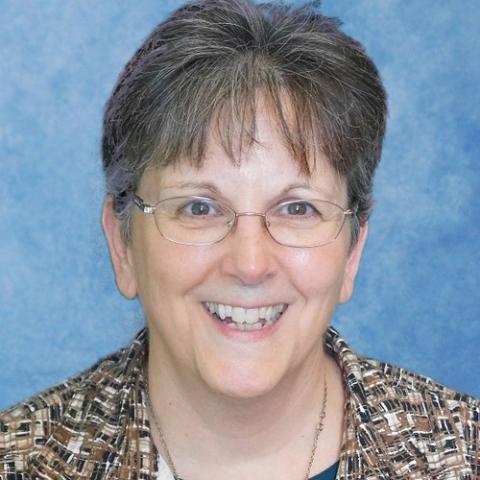
Beth Murphy is a Dominican Sister of Springfield, Illinois. With a background in journalism, communications and theology, she has worked mostly in communications ministry: diocesan communications director, manager of the National Coalition for Church Vocations' publishing arm, Communicators for Women Religious; and communications director for her religious community. In other ministries, she taught junior high, resettled Iraqi refugees in Detroit, and worked in a mostly Mexican parish in Chicago. She has been deeply engaged with the Iraqi Dominican sisters and friars and has traveled to Iraq four times.
Why do you stay?
When I was young, my stock answer was: "Because I am free to leave." Without that kind of freedom, it's not really possible to make a choice for religious life, or any life commitment, for that matter.
As to why I possessed that freedom, I have the circumstances of my life to thank. I was raised in a cultural soup seasoned by lots of exposure to vowed and ordained people: Many seminarians and young priests circulated through my large, fairly affluent, post-World War II baby boom parish; there was a convent full of Franciscans who ran the school and an accident-prone community of sisters in a nearby town insured by my dad. We loved to go with him on his rounds — for the cookies! Three or four different religious orders of women and men taught at my high school.
My brother Tom joined the Carmelites when I was a pipsqueak. It was also clear that the choice was good for some people and not for others. Not all those seminarians or my brother's novitiate classmates chose to stay. Not all of those consecrated women and men at my high school were people worthy of emulation.
Eventually, all this flavored my choice, but I was not the child who felt destined for religious life from age 6. I made my decision quickly in the year after college — proof that the Holy Spirit works her way sometimes in spite of and not because of us!
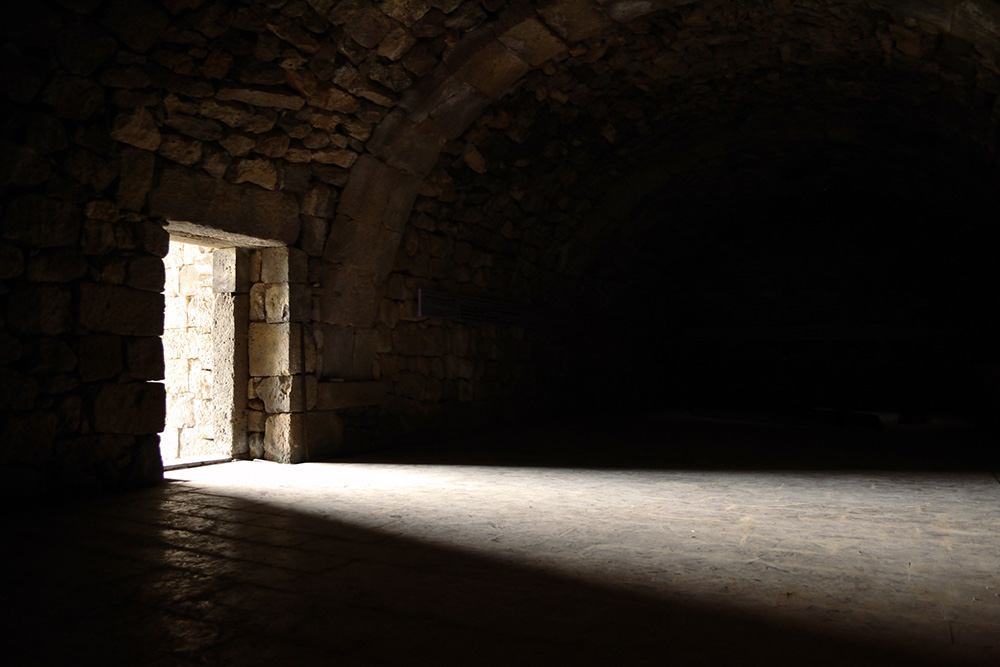
(Dreamstime/Arevhamb)
I found it advantageous that my upbringing taught me there was nothing especially holy, unique or exalted about religious life. What attracted me most back then was the ideal of a commitment to community and to service — and, OK, I'll admit it, the tiniest bit of adventure and romance. Given that, I thought I had a fairly clear-eyed view of religious life before I walked in the door.
Why am I still here?
Because of what I didn't know 40 years ago. How could I have known, when most of my encounters with consecrated people happened in beautiful churches and around a linen-clad dining table, that beneath all the joy I perceived was the heart-wrenching challenge of accompaniment? The self-giving solidarity of common life? The life-honing loneliness of consecrated celibacy? The beauty of communion in the body of a crucified Christ? How could I have known those things, which would break my heart and bind me deeply to the Mystery? That's why.







